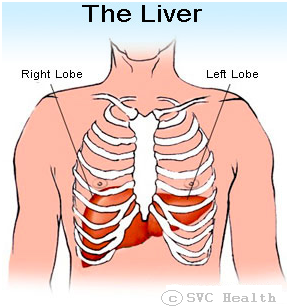Hepatitis A is the inflammation of the liver caused by the hepatitis A virus.

Hepatitis A infection may or may not have any symptoms. Sometime symptoms are mild that they are not noticed first. Older people are more likely to have severe symptoms associated with hepatitis A infection.
Symptoms usually appear between 2 to 6 weeks after infection. Most common symptoms associated with the infection are
• Nausea and vomiting
• Diarrhoea
• Mild, moderate or high fever
• Abdominal discomfort and loss of appetite.
• Skin rashes, itching
• tiredness, fatigue,
• jaundice, yellowish pigmentation of eyes, nail beds and skin.
• darkish brown urine, and or
• pain in area of liver.
Hepatitis is transmitted through faecal-oral route. Contaminated water and food can cause the disease. Close personal contact and having sex with a person who is infected also can transmit the disease.
Specific medication to control the infection is not available. Proper rest is very important to avoid any complications. Alcohol consumption and use of medications that are toxic to liver should be avoided. Vitamin B supplementation may be necessary. Fluid intake is another important factor in proper cure from the disease. Drink more purified water and if patient has uncontrolled vomiting or diarrhoea, an IV infusion may be necessary.
Vaccination is available against Hepatitis A virus. Good hygienic practices will keep you safe from getting this disease. Hand washing, proper waste disposal, drinking boiled or purified water and avoiding unhygienic foods are some important things that will prevent the disease.

Hepatitis A Symptoms
Hepatitis A infection may or may not have any symptoms. Sometime symptoms are mild that they are not noticed first. Older people are more likely to have severe symptoms associated with hepatitis A infection.
Symptoms usually appear between 2 to 6 weeks after infection. Most common symptoms associated with the infection are
• Nausea and vomiting
• Diarrhoea
• Mild, moderate or high fever
• Abdominal discomfort and loss of appetite.
• Skin rashes, itching
• tiredness, fatigue,
• jaundice, yellowish pigmentation of eyes, nail beds and skin.
• darkish brown urine, and or
• pain in area of liver.
Mode of transmission of virus
Hepatitis is transmitted through faecal-oral route. Contaminated water and food can cause the disease. Close personal contact and having sex with a person who is infected also can transmit the disease.
Treatment
Specific medication to control the infection is not available. Proper rest is very important to avoid any complications. Alcohol consumption and use of medications that are toxic to liver should be avoided. Vitamin B supplementation may be necessary. Fluid intake is another important factor in proper cure from the disease. Drink more purified water and if patient has uncontrolled vomiting or diarrhoea, an IV infusion may be necessary.
Prevention